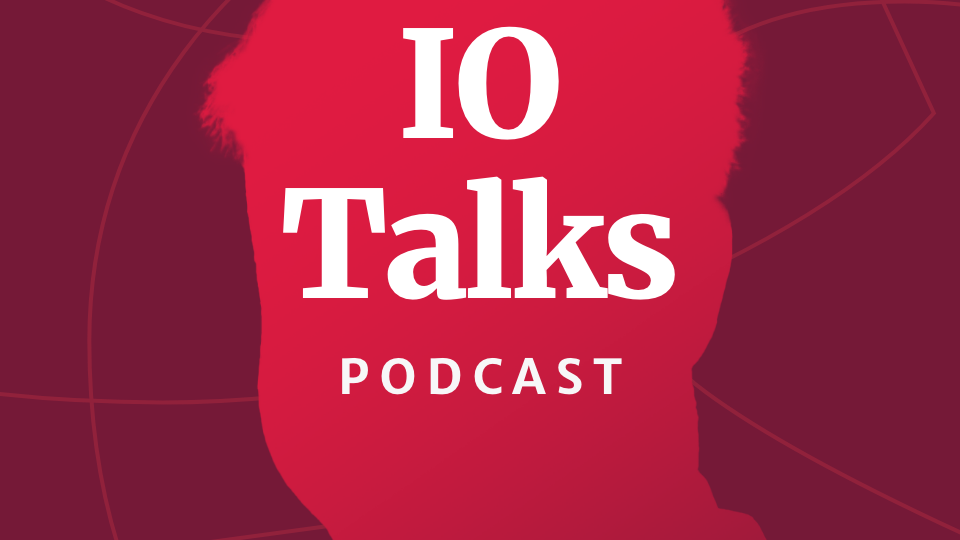
Luxembourg has recently seen the launch of the Luxembourg Valuation Professionals Association, also known as LVPA. Valuations are “extremely strategic for building trust with your investors,” said Hind El Gaidi, one of the LVPA’s co-founders in a podcast interview.
For this Luxembourg edition of the IO Talks podcast, El Gaidi spoke to Investment Officer together with three fellow co-founders: Christophe Vandendorpe, partner at EY; Rafaël Le Saux, director at PwC; and Antoine Boggini, co-founder at BHB & Partners, an independent advisory firm.
As a new kid on the block, the LVPA is keen to contribute to the international success of Luxembourg’s financial ecosystem by ensuring and improving the quality of the valuation profession. Its mission: “lead and represent the valuation profession in Luxembourg by promoting the highest standard of ethics, professional excellence and expertise, education for the ultimate benefit of its members and its community.”
Transparency and trustworthiness
“Absolutely, there is no doubt about it,” said El Gaidi, head of financial information and valuation at Astorg. “Valuation has come to rise as a topic of interest to different stakeholders who were not interested in these topics before, which was seen as someone doing a desktop valuation and that’s about it. Now we are moving into a situation where it’s becoming extremely strategic for building trust with your investors.”
“We have a lot of professionals here that do care about valuations that want to push forward the transparency and the trustworthiness of the valuations,” Vandendorpe said.
When it comes to valuing public companies listed on stock exchanges it’s easy: the share price reflects a company value, as a simple, indisputable fact. It’s a bigger challenge for non-public companies that are part of an alternative investment portfolio that, unlike a listed company, is not valued on a minute-by-minute basis. To value these, a professional valuation needs to be made, backed by solid methods and based on reliable data.
With the democratisation of private equity, such valuations also need to be made increasingly often. Doing that once a year is no longer sufficient. Quarterly and monthly valuations will increasingly become the norm as alternative investments are offered to a wider group of investors that also includes high net worth individuals and family offices.
‘Appetites for variations in terms of frequency’
BHB’s Boggini said the market sees “increased appetites for variations in terms of frequency,” with more firms moving towards quarterly reporting, away from semi-annual reporting, and also towards monthly reporting.
“Obviously, there is a significant need for investors to receive their valuations on a reliable basis,” said Vandendorpe. Trust “is absolutely key in valuations. Valuers need to respect certain principles, standards and guidelines, to perform reliable valuations, but not only. Also, valuers need to obtain qualitative input information and for that technology will increasingly become important. Finally, also other stakeholders such as debt providers, regulators and auditors all need reliable valuations.”
PwC's Rafaël Le Saux said that LVPA also will be able to play a role in educating and training future valuation professionals whose skills are already sought after in Luxembourg.
“We know that there is a push from many entities to have more front office positions in Luxembourg,” Le Saux said. “Attracting and training more valuation professionals will help fill in these open front office positions, as they have a set of skills that are very, very similar to what front office professionals have, particularly valuation, financial modelling and investment analysis.”
‘Soft skills layer’
Certain skills in valuation appear a bit like out of a black box, such as backtesting or calibration. Boggini underlined that it’s important for people interested in valuations to understand these terms, which means valuation professionals need to combine technical expertise with “a soft skills layer on top of it” so to communicate with different types of functions.
“When we talk about valuation - and that’s also important for Luxembourg as a financial centre - we generally say it can be perceived as a middle office function. But I would say that it is more than middle. It's really at the heart of the process. You need to be able just to discuss and to exchange content with auditors, but also with investment teams. So you are really at the heart of that process.”
The first quarter of next year will be an important one for investors in many alternative investment funds because that is when the annual reports are released that will include updated valuations. With the values of listed companies having declined considerably during 2022, it’s anticipated that non-listed assets also face a downwards adjustment.
Related articles on Investment Officer Luxembourg:
- New valuation association is a big deal for private equity
- In-house valuation teams add value to AIFM clients
- CSSF drafting EU best practice for handling NAV errors



